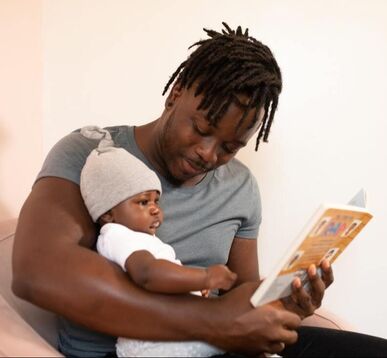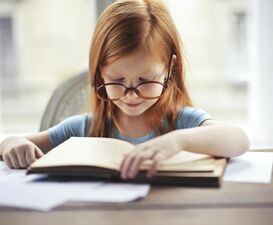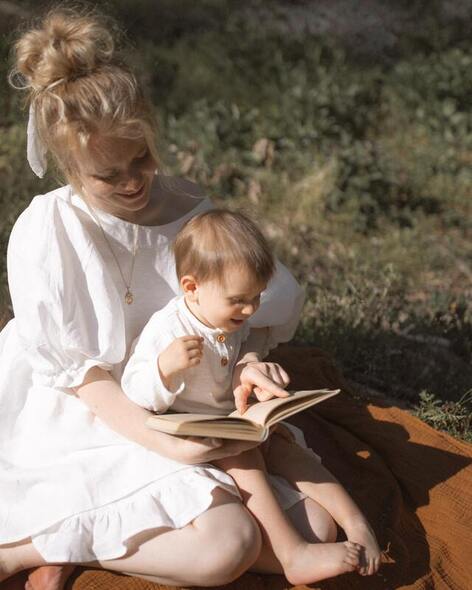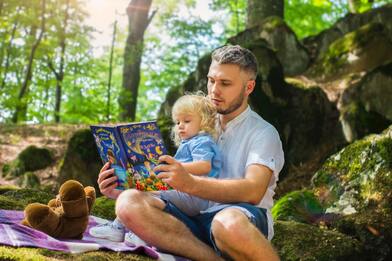"Oh, The Places You'll Go!": The Long-Term Benefits of Reading with your Children
by Jaclyn Heinrich, Provisional Psychologist - BPsyc(Hons)/Clinical Masters Candidate
April 2021
by Jaclyn Heinrich, Provisional Psychologist - BPsyc(Hons)/Clinical Masters Candidate
April 2021
Discovering the wizarding world of Harry Potter, the mischievous happenings of a Cat in a Hat, following Bilbo Baggins to desolate Smaug or solving a murder with Poirot on the Orient Express; books can take you anywhere. Reading is not only a great pastime for children and adults, it is also rich in benefits that will give your child a head-start in life and achieve higher in their future school academics.
Discovering the wizarding world of Harry Potter, the mischievous happenings of a Cat in a Hat, following Bilbo Baggins to desolate Smaug or solving a murder with Poirot on the Orient Express; books can take you anywhere. Reading is not only a great pastime for children and adults, it is also rich in benefits that will give your child a head-start in life and achieve higher in their future school academics.
How Can Parents Help?

Encouraging reading as early as infancy has shown long-term benefits, however, it is never too late to start. Reading aloud to your child, pointing to pictures in the book, reading in funny voices and using sounds to play and have fun with the story, all make the story more engaging and interactive for children and helps them learn whilst also having fun.
The University of Melbourne studied in great detail the benefit of parents reading to their children at a young age and the long-term impacts, finding:
- Reading daily to children aged 4-5 improves language, literacy, numeracy, and cognitive abilities in later life, and is noted to have the effect of being almost a year older
- Young persons who frequently read during age 4-5 achieve higher scores in NAPLAN testing
This study also found that parental income, education level and cultural background did not impact this causal effect between reading to children from a young age and their future schooling outcomes. In other words, no matter the child’s or parent’s background, reading with your child will help their future schooling and academic achievements.
The University of Melbourne studied in great detail the benefit of parents reading to their children at a young age and the long-term impacts, finding:
- Reading daily to children aged 4-5 improves language, literacy, numeracy, and cognitive abilities in later life, and is noted to have the effect of being almost a year older
- Young persons who frequently read during age 4-5 achieve higher scores in NAPLAN testing
This study also found that parental income, education level and cultural background did not impact this causal effect between reading to children from a young age and their future schooling outcomes. In other words, no matter the child’s or parent’s background, reading with your child will help their future schooling and academic achievements.
How Old Should I Start?
Research suggests you can never start too early. Reading aloud to a baby, holding them in your arms, hearing tone, rhythm, and rhyme, and seeing pictures have all been identified as beneficial.
How Often Should I Be Reading To My Child?
|
Most benefits have been seen in children who are read to, 6 or 7 days a week.
The benefits of reading to children are seen in multiple areas of a child’s life, such as:
|
How Do I Get My Child Involved? How To Incorporate Reading Into Your Daily Routine
Incorporating reading into your child’s daily routine is strongly recommended to ensure the above benefits. However, many parents often wonder, “how do I fit reading into our already busy schedule?”. Don’t worry, reading with your child doesn’t have to be a chore – it can actually be quite fun! Here are some simple ways to incorporate reading into your child’s life, making it work for everyone.
Just like brushing your teeth, showering, and eating, reading can be “slotted” into the day quite easily – before getting up in the morning, or just before going to bed at night. Some ideas to make the perfect reading time:
|
How To Access Books
|
Always remember the local library, second-hand shops, and the specials table at the local shops.
But if you can’t access a book, try making up a story with your child or look for an alternative for them to read and ask about, such as:
A child’s teacher will usually have access to a booklist which they may be able to provide, or at least provide suggestions of appropriate books to read. Alternatively, the following links have great suggestions of books to read for appropriate age groups:
A famous story by Dr Seuss called “Oh, the places you’ll go”, took its reader on an imaginative journey through a creative, colourful, and wonderful world. Reading has such an amazing capacity to open these doors to new worlds. |
Sources
Cam Everlands Primary School (n.d.) 10 Benefits of Reading. Retrieved April 20, 2021, from https://www.cameverlands.org.uk/10-benefits-of-reading/
Kalb, G and Van Ours, J.C. (2012). Reading to young children: a head-start in life.
Raising Children (2020). Reading and Storytelling with Babies and Children. Retrieved April 20, 2021, from https://raisingchildren.net.au/babies/play-learning/literacy-reading-stories/reading-storytelling
The University of Melbourne and Department of Education and Early Childhood Development (2012). Reading to Young Children: A Head-Start in Life. Retrieved April 20, 2021, from https://www.education.vic.gov.au/documents/about/research/readtoyoungchild.pdf
Cam Everlands Primary School (n.d.) 10 Benefits of Reading. Retrieved April 20, 2021, from https://www.cameverlands.org.uk/10-benefits-of-reading/
Kalb, G and Van Ours, J.C. (2012). Reading to young children: a head-start in life.
Raising Children (2020). Reading and Storytelling with Babies and Children. Retrieved April 20, 2021, from https://raisingchildren.net.au/babies/play-learning/literacy-reading-stories/reading-storytelling
The University of Melbourne and Department of Education and Early Childhood Development (2012). Reading to Young Children: A Head-Start in Life. Retrieved April 20, 2021, from https://www.education.vic.gov.au/documents/about/research/readtoyoungchild.pdf




